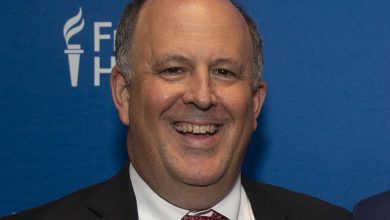Sports Leagues Bet on Gambling. Now They’re Facing Its Risks.

Major League Baseball held its season openers this week under the shadow of a gambling scandal. Reports surfaced that the National Basketball Association is investigating a player over irregular bets. And college basketball fans await results from a review into unusual betting on a men’s basketball game.
The incidents have highlighted a trade-off that professional sports leagues made when they embraced gambling.
Leagues have signed lucrative marketing deals with betting apps like FanDuel and DraftKings and use gambling to amp up fan engagement. But this new source of revenue has also opened the doors to a fundamental danger: that an explosion of sports betting could threaten the assumption of fairness at the core of athletic competitions.
“The risk is that the game becomes like professional wrestling — which is rigged. And nobody bets on professional wrestling,” said Fay Vincent, the M.L.B. commissioner from 1989 to 1992. “And if baseball becomes professional entertainment the way wrestling is, it’s dead.”
Leagues are unlikely to abandon gambling completely. But is there a way for them to protect their image as they profit from betting?
Clubs can no longer blame gambling itself for scandals. When Pete Rose was barred from baseball in 1989 for betting on games, in one of the most famous gambling scandals in sports history, Commissioner A. Bartlett Giamatti, Vincent’s predecessor, denounced gambling as corrosive. But after a 2018 Supreme Court decision paved the way for states to legalize betting, leagues are now working directly with sports books. The N.B.A. signed an estimated $25 million contract with MGM Resorts in 2018, and M.L.B. has an exclusive multiyear deal with FanDuel.



